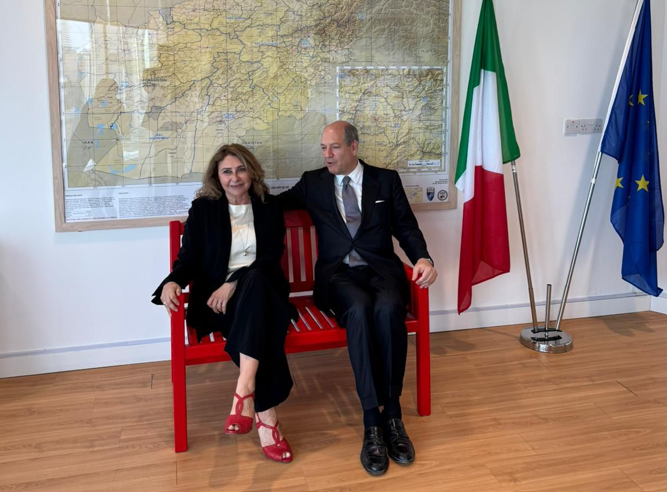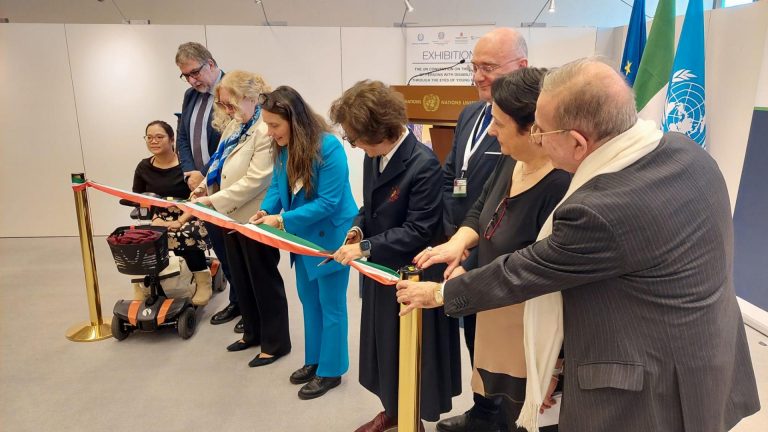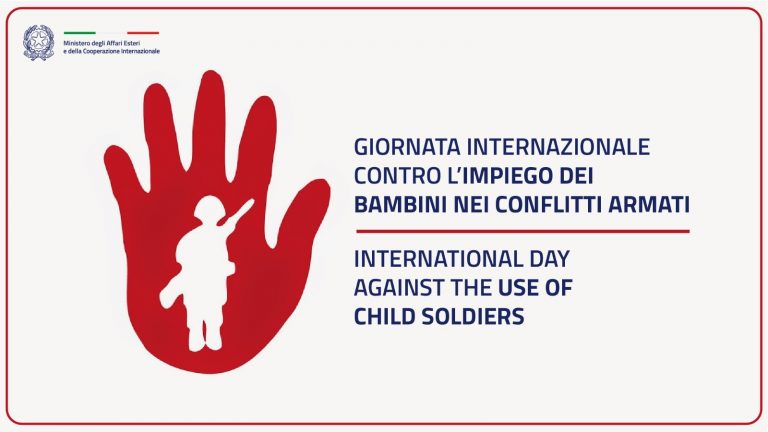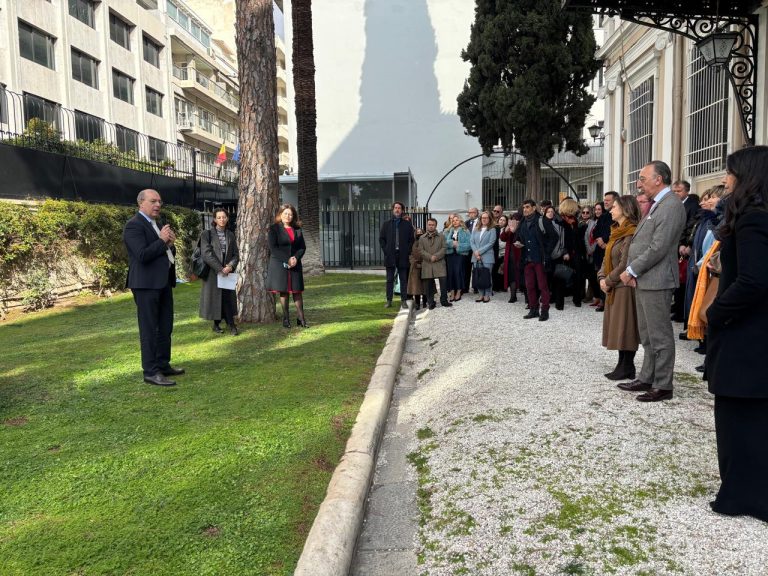(fa fede solo il testo effettivamente pronunciato)
Madame President and High Commissioner,
Excellencies,
Distinguished Delegates,
Ladies and Gentlemen,
Today, more than ever, human rights have acquired an operational dimension. If the ethics of rights is undermined, the social balance is threatened: large-scale violations of the fundamental freedoms create instability and provoke conflicts. There is a close relationship between peace and the full enjoyment of human rights, and between the promotion of values and the safeguarding of interests. The protection of human rights and fundamental freedoms has, therefore, become a structural component of Italian foreign policy.
Italy has a long tradition of putting individuals first. Our humanistic heritage has shaped our history and continues to guide our approach to international affairs. In line with its values, Italy has contributed to the important progress that the international community is making in the transition from a culture of impunity to one of accountability. The Italian Government is also committed in multilateral fora to protecting the most vulnerable categories. I refer especially to women, children and individuals belonging to religious minorities.
The right to freedom of religion or belief is a beacon of civilisation. So the growing attacks against religious minorities have left us deeply shaken. We must do everything possible to ensure that such horrific acts of intolerance are condemned, fought and never again repeated. The continuation of a consensus-based approach to these issues in all UN fora is most important. We are gratified that in 2011 this Council adopted two Resolutions by consensus on precisely this issue. And we are delighted that this Session will also consider the advancement of dialogue and cooperation to ensure freedom of religion and combat intolerance and discrimination.
Violence against women is not only a grave and widespread violation of human rights. It is also a serious obstacle to the achievement of equality and empowerment. Italy is actively engaged in combating all forms of gender-based violence, including female genital mutilation. We are keen to support an African-led partnership to bring this issue to the attention of the UN General Assembly.
Italy also attaches the utmost priority to children’s rights. We will subscribe tomorrow to the third Optional Protocol to the Convention on the Rights of the Child.
Italy is committed to the abolition of the death penalty. We are glad to see that our sustained efforts have been productive, as witnessed by the growing numbers of states acting to achieve this goal. Still, major challenges remain.
Today, Madame President and High Commissioner, my thoughts go especially to the suffering of the Syrian people. Italy has repeatedly condemned the indiscriminate and brutal attacks against civilians. This horrible bloodshed must stop now. An urgent response to the ongoing humanitarian crisis is imperative. These messages were sent out last week by the friends of Syria meeting in Tunis. The recent General Assembly Resolution was another important political sign that the international community is determined to isolate Assad, who has lost any credibility with his own people. We await the upcoming debate in this Council to stress once again that the current situation is wholly unacceptable.
We have supported the imposition of international sanctions on the Syrian leadership, and the efforts made by the UN to increase the pressure on the regime. We are in favour of UN measures for a political solution as indicated by the Arab League’s action plan of 12 February, including a joint UN-Arab League mission to observe the implementation of the cease-fire. We welcome the appointment of former Secretary General Kofi Annan as the joint UN-Arab League Special Envoy.
We regret that, despite the adoption of General Assembly Resolutions, and the Human Rights Council special sessions on Syria, the Security Council was unable to act in support of the Syrian population. We continue to call on the Security Council to take on its responsibilities. A peaceful solution to the crisis must be found. To this end, we also encourage the various components of the Syrian opposition to join a broader unified platform built around the Syrian National Council.
After the Arab Spring, nothing will ever be the same again in North Africa. I welcomed the high and orderly voter turnout in Tunisia and Egypt. And I noted the Libyan people’s proud expectations for the forthcoming elections, after more than 40 years under a brutal regime. We now encourage the new Arab leaderships to incorporate in positive law the principles of moderation recognised by international conventions and by the Islamic civilisation itself. We are confident that the new leaderships of the southern Mediterranean countries will enshrine the protection of freedom of belief in their new constitutions.
We are deeply concerned about the negative developments in the human rights situation in Iran, particularly as regards the death penalty, torture, freedom of expression, and freedom of religion. While we have supported targeted measures against those responsible for grave human rights violations, we continue to hope that a genuine and open dialogue with the Iranian authorities can bring about the improvements that Iran’s civil society aspires to.
In Somalia, fighting continues to cause a high number of victims, especially among civilians. Italy supports Somali ownership of the reconciliation and constitutional process. The international community should now step up its efforts to tackle both the root causes and the effects of the dire situation in that country. We welcome the re-opening of the UN’s political office in Mogadishu. Just a few days ago, I took part in the London Conference on Somalia, which stressed that human rights must be at the heart of the peace process. And I wish to recall that, with a number of other States and regional actors, here in Geneva we have promoted the creation of the Friends of Somalia Group. We are also actively supporting the important work of the independent expert on human rights in Somalia.
Winds of change are now being felt in Burma/Myanmar, where the new civilian government is taking positive steps towards reform. We look forward to seeing the democratization process continue in Burma/Myanmar.
Madame President and High Commissioner,
There is a need for consistency between the external and internal dimensions of human rights policies. In this regard, let me warmly commend the outstanding work done by the High Commissioner for Human Rights, Mrs. Pillay, and her office.
Italy has participated in the Universal Periodic Review, a unique instrument to review the human rights record of each State. We are now very close to establishing an independent national human rights institution, which was a core recommendation stemming from the UPR process.
In the context of the protection of all human rights, the Italian Government has reaffirmed its commitment to protecting the rights of all migrant workers – whose contribution to Italy’s economic activities cannot be underestimated – as well as the rights of all minorities and vulnerable groups, including the Romaand Sinti Communities.
Madame President and High Commissioner,
You can rely on our full support. Italy will continue to pursue the widest possible consensus through dialogue, putting its experience and values at the service of human rights.
We stand for dialogue as a crucial tool to avoid frictions, listen to each other’s concerns, work to achieve civil coexistence among peoples and use this Council to best and most fruitful effect.
However, our open approach to dialogue does not mean that we are ready to accept any compromise. Historical, cultural and religious diversity must not weaken States’ obligations to protect and promote human rights and fundamental freedoms in all parts of the world.






